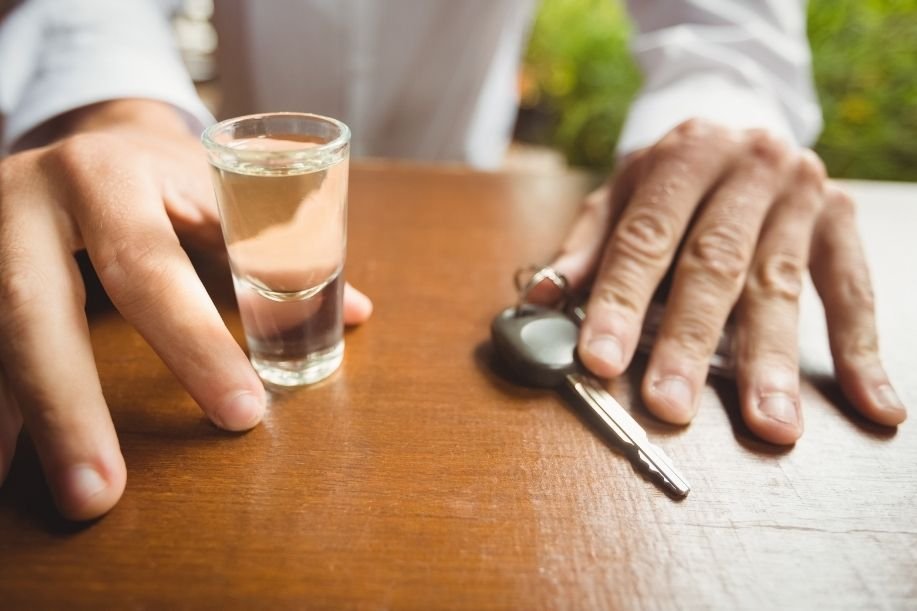Alcohol has played a role in how we mark special occasions for a long time. We use it to relax, celebrate, or uphold age-old traditions. But when a few drinks turn into a dangerous decision to get behind the wheel, the consequences can be serious and far-reaching. Impaired driving laws in BC are among the strictest in Canada. Being charged with driving under the influence in BC can result in immediate penalties, loss of your licence, a criminal record, and possible jail time if others are harmed.
As an expert criminal defence lawyer who has handled countless DUI BC cases across the province, I can attest to the severity of these charges and the life-altering impact they can have. This article will walk you through the main aspects of impaired driving laws in BC, the consequences of violating them, and what has changed recently, specifically when it comes to roadside suspensions and the Immediate Roadside Prohibition (IRP) program. I’ll also share current statistics to help you grasp just how seriously British Columbia treats impaired driving and how I can help you navigate them.
What are Impaired Driving Laws in BC?
In British Columbia, impaired driving means operating a motor vehicle while your ability to do so is compromised by alcohol, drugs (including cannabis), or a combination of both. It is governed by both federal criminal law (under the Criminal Code of Canada) and provincial regulations through the Motor Vehicle Act.
You can be charged for:
- A Blood Alcohol Concentration (BAC) of 0.08 or higher
- Being impaired by drugs, even without alcohol in your system
- Refusing a roadside breath test or drug screening
The BC government uses a tiered penalty system for impaired driving, depending on how much alcohol is detected and whether it’s a first or repeat offence.
Consequences of a DUI in BC
Getting a DUI in BC can carry swift and severe penalties, including:
- Immediate roadside licence suspension (from 24 hours to 90 days)
- Vehicle impoundment
- Mandatory fines (ranging from $600 to over $1,400, depending on the offence)
- Criminal charges for more serious or repeat violations
- Ignition Interlock Program (You may be required to install a breathalyzer in your car)
- Mandatory rehabilitation or education programs
- A permanent criminal record, which can affect employment, travel, and insurance
What Has Changed?
Key Updates to Impaired Driving Laws in BC and Roadside Suspensions
British Columbia’s Immediate Roadside Prohibition (IRP) program has been in place since 2010, but recent alcohol-impaired driving law updates have expanded police powers and simplified enforcement. This is particularly the case in how roadside testing is conducted.
Mandatory Alcohol Screening
Since the federal government amended the Criminal Code in 2018, police officers in BC can demand a roadside breath test from any driver. This is also applicable when there’s no clear indication of impairment; it is known as Mandatory Alcohol Screening (MAS).
Previously, an officer needed reasonable suspicion (such as slurred speech or the smell of alcohol) to administer a test. Now, refusing a breath test is a criminal offence, punishable by the same or harsher penalties than blowing over the legal limit.
Important Note: Mandatory alcohol screening is only valid if you, the driver:
- Are in care and control of the vehicle
- Have been stopped lawfully
- If the police officer has the approved screening device at hand
Stricter Immediate Roadside Prohibitions (IRPs)
Under the IRP program, a driver who blows:
Between 0.05 and 0.08 BAC (the “warn” range) may receive:
- A 3-day license suspension, 3-day vehicle impoundment, and $600 in fees for a first offence.
- A 7-day license forfeiture, 7-day impoundment, and $780 in penalties for a second offence within 5 years.
- A 30-day license seizure, 30-day impoundment, and $1,330 in charges for a third offence
Over 0.08 BAC (or the “fail” range) faces immediate driving license suspension for 90 days, 90-day vehicle impoundment, and $1,430 in total fines. Note that costs do not include taxes.
Recent updates have increased the use of IRPs over criminal charges by updating penalties and reducing the number of impaired driving cases going to court. This has, however, not made them any less serious.
Drug-Impaired Driving Enforcement
Drug-impaired driving has become an emphasis with the legalization of cannabis in Canada. Officers are now trained in Standardized Field Sobriety Testing (SFST) and use oral fluid drug screeners to detect THC and other substances at the roadside.
The threshold for THC is 5 nanograms per millilitre of blood for a first offence. Even trace amounts can lead to punitive damages if your driving is deemed impaired.
Why You Should Seek Legal Help Immediately
If you’re facing an IRP or DUI in BC, don’t face it alone. The administrative process can be fast, and you may have as little as 7 days to dispute a roadside prohibition. A criminal conviction can affect your licence, livelihood, and opportunities. As a defence lawyer with numerous testimonials of my expertise in handling DUI BC cases, I can help you know your rights, challenge improper roadside testing procedures, and build a strong case. You can navigate the stringent impaired driving laws in BC with confidence by having me on your side.
Conclusion
Impaired driving laws in BC are progressing to meet new challenges like cannabis use and roadside enforcement technology. These laws are created to protect the public, but they may also impose serious implications on those who are unaware or unprepared.
Knowing your rights, remaining educated, and exercising good judgment are the first steps toward staying safe and legal on the road. And don’t hesitate to get professional legal help if you ever find yourself on the wrong side of the law.
If you’ve been charged with a DUI BC or received a roadside prohibition, reach out to my office today for expert legal advice and representation. Your future is too promising to leave to chance.



